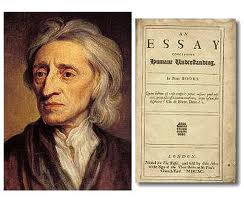John Henry: A Conservative Defense of a Jobs Guarantee Program
By John Henry, Professor of Economics at UMKC. Originally published at New Economic Perspectives.
 John Locke is the “father” of property rights theory, and continues to be referenced in defense of private property. In the second volume of his Two Treatises of Government, Locke specified the conditions that must be satisfied in order for property to be deemed legitimate. Initially, any property taken from “the commons” (public or collective property) had to be based on one’s labor that was expended to improve that property. (While Locke focused on landed property, his argument applies more generally.)
John Locke is the “father” of property rights theory, and continues to be referenced in defense of private property. In the second volume of his Two Treatises of Government, Locke specified the conditions that must be satisfied in order for property to be deemed legitimate. Initially, any property taken from “the commons” (public or collective property) had to be based on one’s labor that was expended to improve that property. (While Locke focused on landed property, his argument applies more generally.)
But, there were two further conditions that had to be met, labeled the “prejudice” and the “spoilage” constraints—and these were seen as moral constraints. Essentially, the prejudice constraint means that no one can be disadvantaged by another’s appropriation of property; all must benefit, though some may benefit more than others. The spoilage constraint connotes that none can seize property beyond that which can be used by one’s own labor. If either constraint is not satisfied, two options are proposed: the disadvantaged have the right to revolt and overturn a private property regime, or government has the obligation to step in to rectify the situation in the interests of the community at large.
Now, it is clear that any large property holdings—giant farms, the modern corporation, etc.—violate the spoilage constraint. Locke himself was aware that there was a problem in his formulation in that, if adhered to, the capitalist accumulation process could not proceed. (He tried to wiggle out of his self-imposed dilemma by arguing that the accumulation of money—gold for him—was morally permissible as it didn’t violate either the prejudice or the spoilage constraints; anyone could accumulate money, and money (gold) didn’t spoil. For a critical evaluation of Locke’s proposed solution, see Bell, Henry, and Wray 2004.) The main issue addressed here is whether unemployment violates the prejudice constraint, thus calling the continued adherence to a private property regime into question. If so, from a purely Lockean standard, then government must undertake a program to guarantee full employment in the interests of society as a whole—and this is a moral obligation.
Read more...


